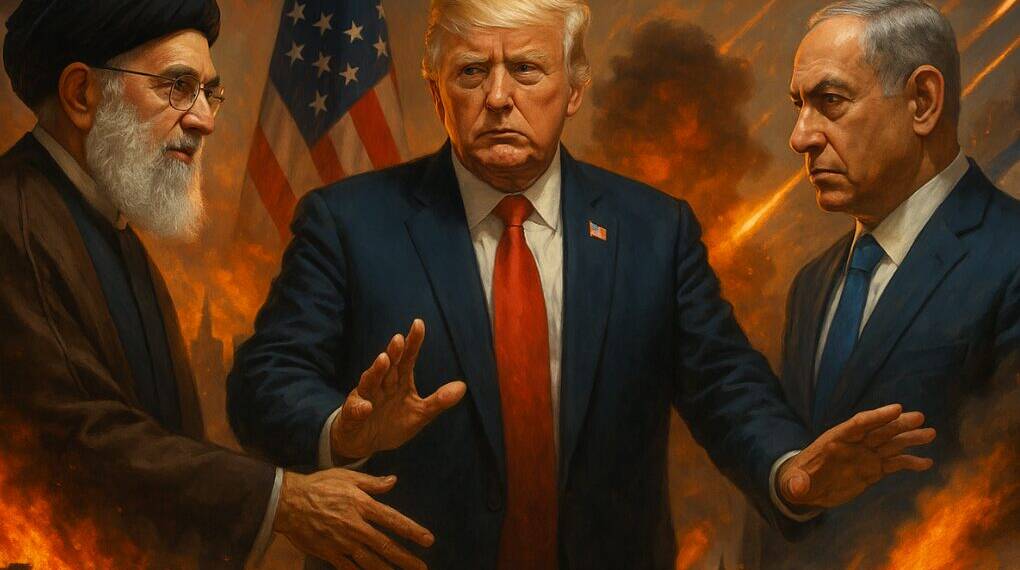The long-simmering tensions between Israel and Iran erupted into unprecedented open warfare over the weekend, killing hundreds and threatening to spiral into a full-blown regional crisis with global repercussions.
Surprise Strikes and a Spiraling Conflict
Early Friday morning, Israel launched a major surprise offensive—“Operation Rising Lion”—striking deep into Iranian territory and targeting key elements of Tehran’s nuclear infrastructure in Natanz and Isfahan. Israeli officials described the strikes as a deliberate attempt to dismantle Iran’s nuclear and missile capabilities, which they allege pose an existential threat.
Among the high-profile casualties were top Iranian military leaders, including IRGC commander Gen. Hossein Salami and Chief of Staff Gen. Mohammad Bagheri. The attacks also devastated Iranian nuclear research facilities and ignited widespread fires at oil depots and gas plants.
Iran responded within 36 hours, launching a massive barrage of 270 ballistic missiles, targeting Israeli cities including Tel Aviv and Haifa. While Israel’s Iron Dome and David’s Sling intercepted the majority, 22 missiles penetrated its defenses. Civilian areas were hit, including an apartment complex in Bat Yam that killed at least six people, including children.
Civilian Toll Mounts
According to human rights organizations, more than 400 Iranians have died since the beginning of the Israeli campaign, including 60 in a single airstrike that flattened a 14-storey residential building in Tehran. Iran’s government has yet to release a full casualty count.
In Israel, 13 civilians have been confirmed dead over two days, with dozens more wounded as Iranian missiles breached defenses in urban centers.
Energy Sector Under Fire
For the first time in modern history, both nations have directly targeted each other’s energy infrastructure. Israel struck Iran’s Shahran oil depot and key installations at the South Fars gas field—the world’s largest. In turn, an Iranian strike forced a partial shutdown of Haifa’s oil refinery, shaking energy markets.
Although Israel has thus far avoided hitting Iran’s oil export terminals—possibly to avoid provoking global backlash or direct involvement from oil-dependent nations—traders expect wild swings in prices when markets reopen. Oil surged 9% on Friday, and more volatility is expected.
Trump Vetoes Khamenei Assassination
In a political twist, two U.S. officials revealed to Reuters that President Donald Trump recently vetoed an Israeli plan to assassinate Iran’s Supreme Leader Ayatollah Ali Khamenei, signaling Washington’s desire to contain the conflict and avoid a broader conflagration.
“Have the Iranians killed an American yet? No,” said a senior U.S. official. “Until they do, we’re not even talking about going after the political leadership.”
President Trump, while vocally supporting Israel’s right to self-defense, has urged caution and restraint, warning Iran that any attack on U.S. personnel or assets would trigger an overwhelming response. “The full strength and might of the U.S. Armed Forces will come down on you at levels never seen before,” Trump declared on Truth Social.
Covert Operations and Internal Sabotage
Adding to the intensity, reports have emerged that Israel’s Mossad had smuggled drone components into Iran over recent months, preparing for a coordinated internal sabotage campaign. Intelligence officials now believe that several key strikes on Iranian radar and fuel infrastructure were launched from within the country by pre-positioned drones.
This revelation raises questions about Iran’s internal security vulnerability, and may embolden dissidents as Israel’s leadership—including Prime Minister Benjamin Netanyahu—calls openly for “regime change” in Tehran.
International Reaction and Nuclear Talks Collapse
The conflict has effectively halted nuclear negotiations between Iran and the United States, with Tehran stating it would not negotiate “under fire.” International leaders have issued urgent calls for de-escalation. France condemned Iran’s missile launches, while Pakistan denounced Israel’s airstrikes.
The International Atomic Energy Agency (IAEA) has confirmed that several Iranian nuclear facilities were severely damaged, but stated that no radiation leaks have been detected so far.
A Region on Edge
Residents of Tehran have flooded gas stations, fleeing anticipated Israeli strikes. In both countries, millions have been forced into shelters. Iran has restricted internet access and warned citizens against pro-Israel online activity, intensifying its grip on domestic information flow.
As of Monday morning, Israeli jets were still reportedly pounding dozens of Iranian targets, including air defense systems and command centers. Iran’s President Masoud Pezeshkian vowed “more decisive and severe” retaliation if attacks continue.
Whether the conflict intensifies into a wider regional war or leads to a new geopolitical equilibrium now hangs in the balance—with energy markets, diplomacy, and human lives all on the line.








